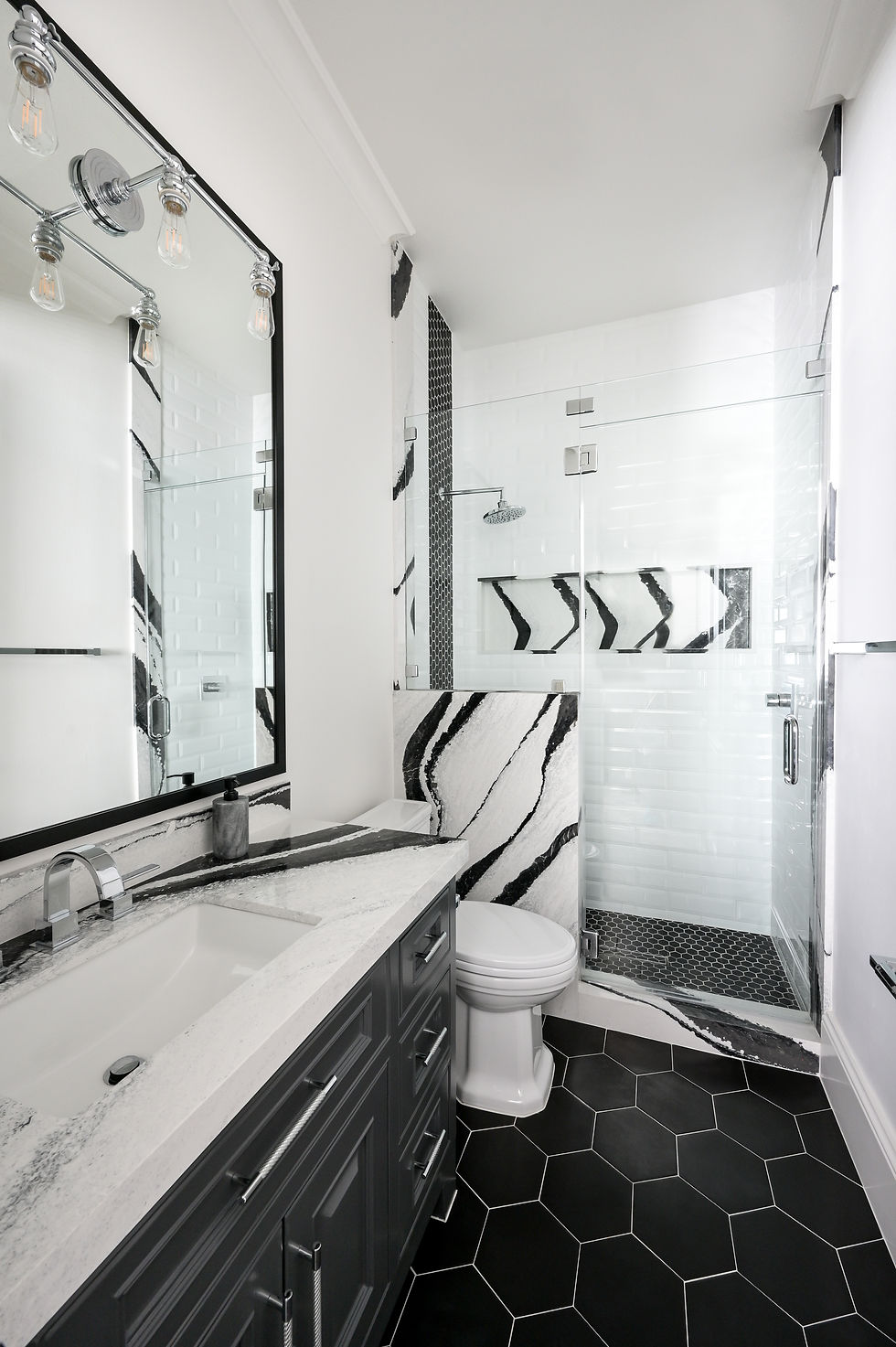Quartz, Granite, and Countertop Considerations
From double-island kitchens to tucked away powder baths, there’s a lot to consider when selecting slabs for countertops! While each space inevitably has their own unique set of needs, there’s typically a common wishlist that we’ve seen with our own clients:

Durability — can this handle everyday use, jumping pets, and everyday meal prep?
Granite Durability:
One of granite’s most loved qualities is its tried-and-true strength. And, its ability to handle high heat. Scratches may happen, depending on how the specific slab was mined and fabricated. With granite, you just have to remember it’s a completely natural stone — and there are always exceptions and asterisks with naturally occurring materials.
Quartz durability:
If durability is your priority, Quartz will typically be your most durable option. Because Quartz countertops are often blended with other minerals, resins, and polymers, these slabs are much more resistant to scratches and chips. So, chop away! (On a cutting board, preferably) However, unlike its Granite cousin, Quartz does not handle high heat well. So, be careful with those fresh-from-the-oven dishes!

Investment — what is my main priority in this space? Will an investment in a higher quality piece of stone be better in the long run? Am I comfortable with seamed slabs, or would I prefer continuity?
Granite & Quartz Investment
Both Granite and Quartz will be an investment — after all, both begin as raw minerals from the earth, to then carefully fabricated surfaces fit for everyday use! However, granite is typically a little more of an investment than quartz.
Quartz has also gained quite a bit of popularity over the years (and we use it often in many of our projects!), which means that there is opportunity to have quartz fit within a range of budgets and investment preferences. Typically, pattern, color, and grade of stone will determine the final cost of each specific slab.

Composition — what is my aesthetic preference for my countertops? Am I seeking natural striations and “imperfect” characteristics, or would I prefer the clean, contiguous, polished look?
Granite Characteristics:
Natural stone with natural differentiation in striation, pattern, and color. With granite, you can expect more natural differentiations between slabs and cuts.
Quartz Characteristics:
Engineered stone made of mostly natural quartz, but may be blended with other minerals. This means that Quartz oftentimes feels more “uniform” — but also, that you may find patterns and colors that fit your vision, that aren’t necessarily naturally occurring.

Our Fairway Transitional project was a quartz-heaven, as we sourced and specified more than a handful of custom slabs. You can see the full project here.










Comments